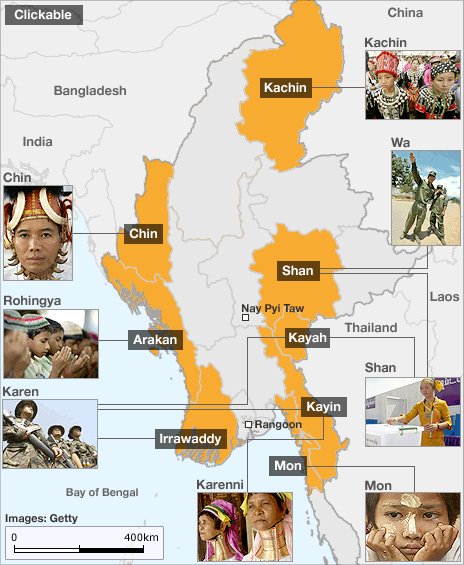War On Women And Minorities In Colonial And Post-Colonial Burma – Analysis
Colonial Era
Rudyard Kipling remarked in From Sea to Sea and Other Sketches, “This is Burma and it will be quite unlike any other land you will know about.” [1] The country indeed has a unique history that has shaped its fiercely independent and authoritarian governments. Perpetual existential threats have created strong ethnic paranoia among the Burmese establishment that has recently culminated in brutal repression of minorities, particularly females.
BY RUSSELL A. WHITEHOUSE – contributor to Eurasia Review.
Burma has had to fight off Chinese and Mongol incursions from the porous northeast border for countless centuries.[2]Lavish monuments, such as the gold-plated, 76-carat diamond-topped Shwedagon Pagoda, have made Chinese emperors and generals salivate at the nation’s myriad natural resources, as well as the strategic Irrawaddy River, which flows from China to the Indian Ocean, utilized in ancient times as part of the Southwestern Silk Road. [3]
The British likewise felt awe at the boundless potential of Burma. Not only did Burma contain troves of valuable metals and minerals, but rice paddies and teak. By the late 1930s, Burma would come to produce 40% of the world’s rice exports. [4]The nation-spanning Irrawaddy River could serve as an extremely convenient transit hub between China and British India. As Secretary of State for (British) India, Lord Cranborne, aka Robert Arthur Talbot Gascoyne-Cecil, remarked in 1867 that, “It is of primary importance that no other European power insert itself between British Burmah [sic] and China… The country itself is of no great importance. But an easy communication with the multitudes who inhabit western China is an object of national importance.” [5] Burma was a potential imperial super-highway.
Thus, Britain proceeded to forcefully annex, in three stages, the various states of Burma between 1824 and 1886. Various British officers stationed in India, such as Rudyard Kipling and George Orwell, moved east to administer the new territory. The colonial government quickly turned Burma into a commodity state. Burmese farmers were producing more and more rice, but they couldn’t keep up with the rising tax rate. As a result, half of all arable land was defaulted on by 1936, leaving them in the hands of British financiers. [6] Along with the taxes, Britain economically enslaved Burma by keeping them in the dark about industrialization, allowing the resource-rich nation to only produce raw materials and food. The colonial government thus set up tariffs that gave British companies a monopoly on the Burmese market; thus, any modern gadgets desired or needed by the Burmese had to be bought at an exorbitant markup from these foreign companies. [7] These economic tactics of colonial subjugation had already been well tested and established in neighboring colony India [8] and would lead to substantial and lasting poverty in both India and Burma. Additionally, this would lead to a culture in Burmese governance that emphasizes economic exploitation over the rights of minority groups.
[…./]
Conclusions
British colonial rule paved the way for the strict authoritarianism that Burma is now at least attempting to move away from with “civilian rule”. For too long, the Burmese government has, like imperial Britain, used oppression as an official tool to stay in power, using draconian and deliberate laws and wide-scale violence against primarily women and children. Bamar ultra-nationalism has led to the systemic disenfranchisement of minority groups, to the extent that the Rohingyas aren’t even considered citizens. Local Burmese intellectuals joke that George Orwell wrote not only one book about Burma, but a trilogy: Burmese Days, Animal Farm and 1984. The government and domineering military will have to immediately suspend its persecution of minorities and then negotiate for the extraction and sharing of indigenous commodities. Burma’s President-Elect must also act to stop the hate-mongering invoked by prominent monks and intervene in any future pogroms; he can no longer look the other way when it comes to anti-Muslim rioting. Full suffrage should be granted to the Rohingya, in order to fully facilitate Burma’s transition from junta to democracy. All of Burma’s ethnicities must ultimately play a part in the reconciliation and redemption of the country and should have an equal role in shaping its democratic future.
[1]Kipling, Rudyard. From Sea to Sea, Ch. 2. https://ebooks.adelaide.edu.au/k/kipling/rudyard/seatosea/chapter2.html
[2]“Unruly Lines.” The Economist. 11 Feb. 2013. <http://www.economist.com/blogs/analects/2013/02/chinas-history-myanmar>.
[3]Anderson, James A. “China’s Southwestern Silk Road in World History.” Board of Trustees of the University of Illinois. http://worldhistoryconnected.press.illinois.edu/6.1/anderson.html.
[4] Luscombe, Stephen. “British Empire: Asia: Burma.” http://www.britishempire.co.uk/maproom/burma.htm.
[5]Bengtsson, Jesper. Aung San Suu Kyi: a Biography(Potomac Books, 2012), 42.
[6] Luscombe, Stephen. “British Empire: Asia: Burma.” http://www.britishempire.co.uk/maproom/burma.htm.
[7]Orwell, George. “How a Nation Is Exploited – The British Empire in Burma.” May 4, 1929. http://theorwellprize.co.uk/george-orwell/by-orwell/essays-and-other-works/how-a-nation-is-exploited-the-british-empire-in-burma/.
[8]Bagchi, Aniruddha. “Why Did the Indian Economy Stagnate under the Colonial Rule?” International Growth Centre. September 16, 2013. http://www.ideasforindia.in/Article.aspx?article_id=189.
To continue reading go to: http://www.eurasiareview.com/14122015-war-on-women-and-minorities-in-colonial-and-post-colonial-burma-analysis/






